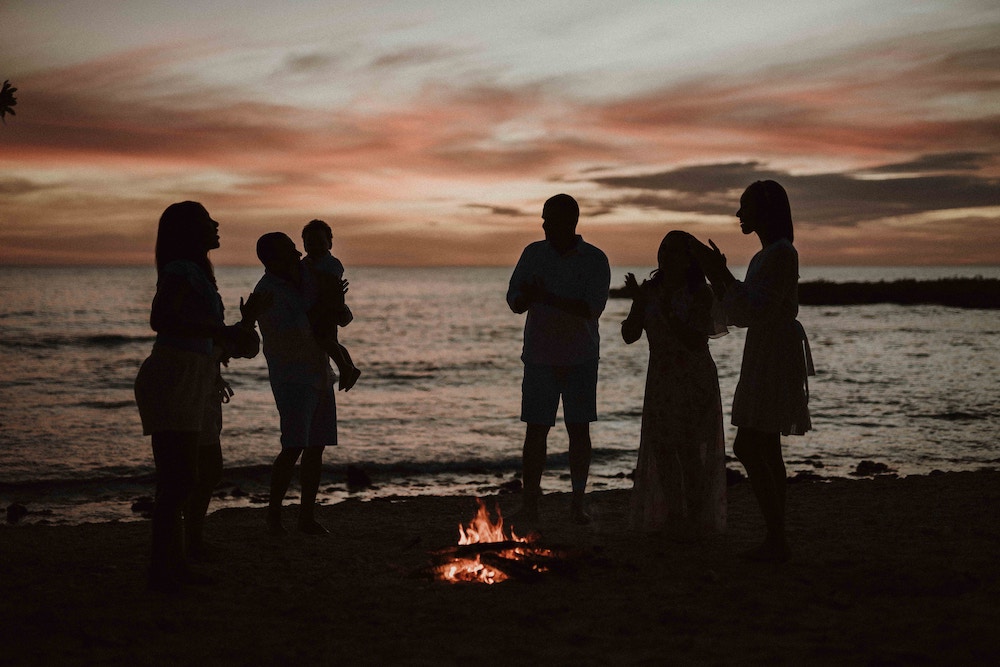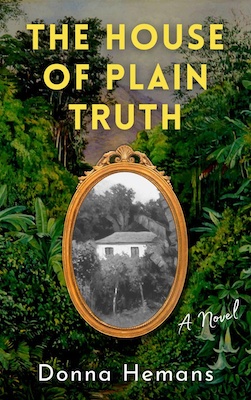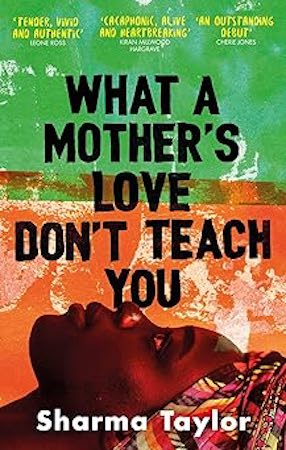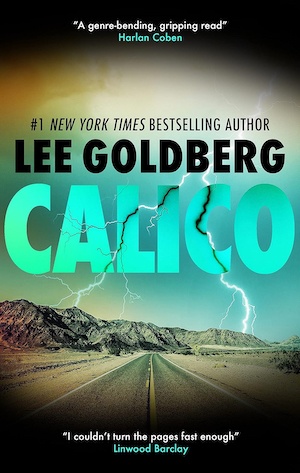Growing up, I often thought of my mother as a collector of people. She collected people the way other people collect things. So it was never just us five—my parents and their three girls. Instead, people appeared, staying for various periods and disappearing: the live-in helpers; teens and young women my mother helped through some difficulty or family crisis; boarders who lived in our home and attended a neighborhood high school or community college; the gardener’s children who spent weekends and summer holidays with us and who my sisters and I helped with reading and math, much the same way we lined up our dolls on the verandah for our version of school.
For a large part of my youth, my “family” was a combination of people with various social and economic circumstances—some vastly different from my own. Caribbean family stories are often like that, stories of biological and found families, people who come together and pull apart for various reasons.
Often, the novels that are most transformative for me are those that explore atypical family dynamics and transcend conventional family stories. These eight Caribbean family sagas portray families formed by biology or culture, proximity or shared experiences.
Hungry Ghosts by Kevin Jared Hosein
The Saroop family dynamics begin to fall apart when Hans Saroop gets a new job serving as night watchman on the Changoor farm after the wealthy owner goes missing. The Changoor farm offers Hans comforts he doesn’t have at his home in the dilapidated barrack where he lives with his wife Marlee and son, and a host of other poor Hindu families. When Hans Saroop falls for his employer, he sets in motion questions about loyalty, sacrifice, and what it takes to get ahead, and upends both his biological family and the family living in the close confines of the barrack.
Land of Love and Drowning by Tiphanie Yanique
Land of Love and Drowning follows three generations of the Bradshaw family living on the Virgin Islands in the early 1900s—all descendants of Captain Owen Arthur Bradshaw whose ship sinks around the time the Virgin Islands are transferred to American rule. The book revolves around his three children: Eeona, who is exiled to the island of Tortola after her mother discovers the captain has had an incestuous relationship with his older daughter; Annette, who considers herself the historian of the family; and Jacob, born to the captain’s mistress. Each child has a magical gift that they rely on once they are orphaned, a gift that can either save or destroy their lives.
What a Mother’s Love Don’t Teach You by Sharma Taylor
When Dinah, a domestic worker, becomes pregnant in her late teens, she gives up her baby to a wealthy expat couple working in Jamaica. The couple disappears and eighteen years later, when a young man, Apollo, visits the family for whom Dinah now works, Dinah is convinced the young man is her long-lost son. Apollo is also curious about the strange woman who thinks she knows him and his Jamaican heritage, which his parents do not discuss. Class and race collide in this saga about biological and adopted families.
Book of the Little Axe by Lauren Francis-Sharma
Rosa Rendón would rather work on her family’s farm than do domestic work. But when the British capture Trinidad and it becomes clear that free black property owners will lose their land and their freedom, Rosa leaves the island and heads north to live among the Crow Nation in Montana. There she marries a Crow Chief but her son Victor increasingly realizes his mother has kept many secrets about his family ties from him. In this multi-generational saga, Rosa has to retrace her own journey to help her son forge his own path to manhood.
The Island of Forgetting by Jasmine Sealy
Spanning four generations, this novel begins in 1962 with Iapetus, driven mad by the memory of watching his brother, Cronus, murder their father. Cronus encourages Iapetus to forget and later takes in Iapetus’ son, Atlas. But Iapetus and each generation of his descendants remain tied to Cronus even after Cronus dies. Atlas shelves his dream to leave Barbados to study and instead takes on a role helping his cousin manage the hotel Cronus owned. We also meet Atlas’s teenage daughter, Calypso who falls for and has a child with a much older Canadian real estate developer, who is in business with her uncle. And Calypso’s son, also raised at the hotel, battles with his own sense of identity and his mother’s movement in and out of his life. With echoes of Greek mythology, this novel explores the sometimes impossible task of shedding family legacy and forging one’s own path.
Black Cake by Charmaine Wilkerson
When Eleanor Bennett dies, she leaves behind a long voice recording for her children, Byron and Benny, along with a traditional black cake. Eleanor’s message describes a swimmer who escapes her island on her wedding day just after her new husband collapses and dies, and a baby born during her time in England. Estranged siblings, Byron and Benny, are both reeling with the secrets their mother has chosen to disclose only after her death, the new family stories they uncover, and their own broken relationship. The book explores how family stories can both upend and unite a family.
The Book of Lost Saints by Daniel José Older
Marisol’s ghost wants the story of her disappearance during the Cuban Revolution told. To do so, she haunts her nephew Ramón, floating through the book and shadowing her nephew through every public and private aspect of his life. Through Marisol’s haunting, Ramón uncovers his family’s buried history, Marisol’s capture and imprisonment during the revolution, and his family’s escape to America. As Ramón learns Marisol’s story, and the reasons his mother prefers not to talk about this period in her family’s life, he engineers a family reunion no one thought possible.
Dominicana by Angie Cruz
Growing up in a struggling family in the Dominican Republic, fifteen-year-old Ana Canción is pushed into a marriage with a much older man as part of her mother’s plan to move her family from their poverty stricken community to America. Juan Ruiz, who has been living in New York City, marries the teen to obtain the Canción family’s land. When Ana moves with her new husband to New York, she finds a rundown apartment and herself in circumstances that don’t allow her to take care of her family financially as her mother expects. This family saga is one of determination and desire, and a young woman finding her way out of circumstances set up for her to fail.











